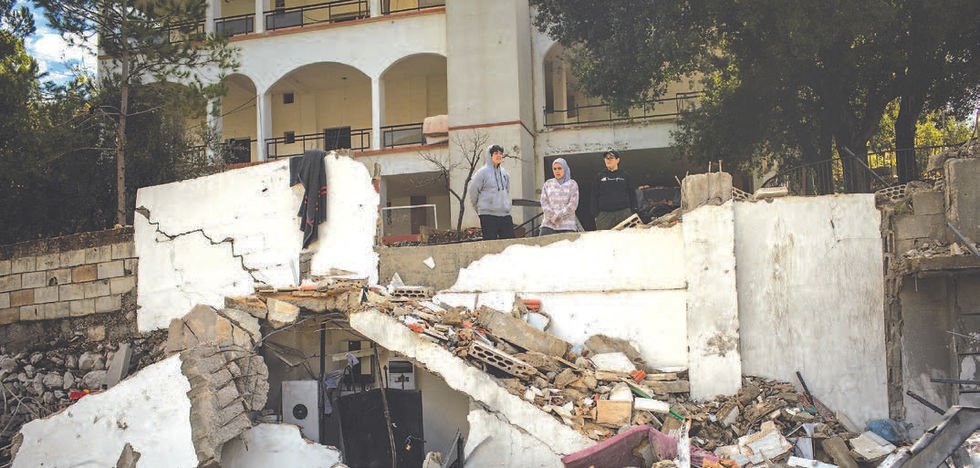Israel issues new evacuation warnings in Lebanon
- The San Juan Daily Star

- Nov 12, 2024
- 3 min read

By Euan Ward and Isabel Kershner
The Israeli military issued new evacuation warnings for more than 20 towns and villages in southern Lebanon on Monday, and Hezbollah unleashed a large rocket barrage into northern Israel, the latest indications that the conflict showed few signs of abating.
The widespread warnings across the country’s south, the first in nearly a month, called on civilians to immediately evacuate their homes and move north of the Awali River, farther from the Israeli border. The river effectively demarcates southern Lebanon, which Israel invaded last month in a bid to destroy Hezbollah’s infrastructure and stop it from firing rockets and missiles into Israel.
As that ground offensive continued Monday, Israel’s new foreign minister, Gideon Saar, signaled that renewed U.S.-brokered diplomatic efforts were now underway to stem the conflict.
“There is progress,” said Saar, speaking at a news conference. “The main challenge eventually will be to enforce what will be agreed.”
Repeated rounds of shuttle diplomacy over the past year, led by the Biden administration, have so far failed to contain the conflict between Israel and Hezbollah, which began in October 2023 when Hezbollah started its cross-border assaults in support of Hamas in the Gaza Strip. The violence has significantly escalated in recent weeks. Officials say 3,200 people have been killed in Lebanon and more than a fifth of the population displaced.
Efforts to reach a temporary cease-fire are complicated by the fact that, even if Hezbollah does agree to demilitarize in southern Lebanon, it is unclear how such an agreement would be enforced — and by whom exactly. A U.N. resolution that ended the last major conflict in 2006 also called for Hezbollah to disarm along the border but has been widely considered a resounding failure.
Ron Dermer, Israel’s minister of strategic affairs and a close confidant of Israeli Prime Minister Benjamin Netanyahu, visited Russia last week to discuss the possibility of a Russian role in enforcing a truce in Lebanon, according to an official familiar with the matter, who spoke on condition of anonymity because they were not authorized to speak publicly.
Asked about his visit Monday, Saar indicated that Russia could “contribute” toward efforts to stop Hezbollah rearming via land routes that pass through Syria, where Russia maintains a military presence. It was unclear how exactly Russia was expected to assist.
The seemingly renewed momentum in recent days behind a diplomatic settlement mirrors a growing confidence among Israeli officials that Hezbollah has been significantly weakened. The hope is that such a settlement, on the back of Israeli military victories inside Lebanon, will allow the tens of thousands of Israeli civilians displaced along the border to return home.
Following remarks Sunday by Israel’s new defense minister, Israel Katz, that Hezbollah had been “defeated,” Saar said during his news conference that the group had “lost the majority” of its missile and rocket stockpiles.
Hours later, however, Hezbollah struck back at those claims, unleashing a large rocket barrage near the northern Israeli city of Haifa. At least three people were injured in the attack, according to Magen David Adom, the Israeli emergency service.
The barrage served as the latest reminder that Hezbollah still poses a formidable threat despite concerted Israeli efforts to stymie the group’s cross-border fire. The Israeli military said that a total of 90 projectiles had crossed the border, not all of which were intercepted by the country’s air defense system.
The head of Hezbollah’s media office, Mohammed Afif, said Monday that the group had not yet received any proposals on a cease-fire deal in Lebanon, but there had been “contacts between Washington, Moscow, Tehran and other capitals” on the issue since the election of former President Donald Trump last week.
“Nothing official has reached Lebanon or us,” Afif said at a news conference in the Dahiya, the area adjoining Beirut where the armed group holds sway.
Hezbollah, he cautioned, remained “ready for a long war.”






Comments